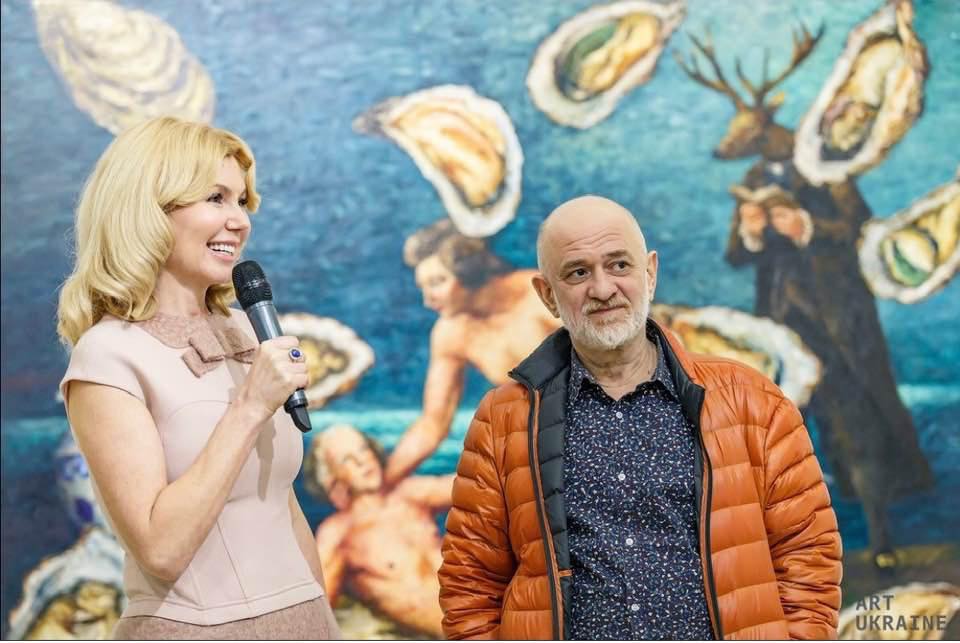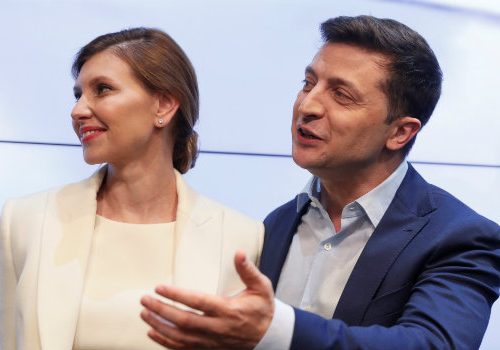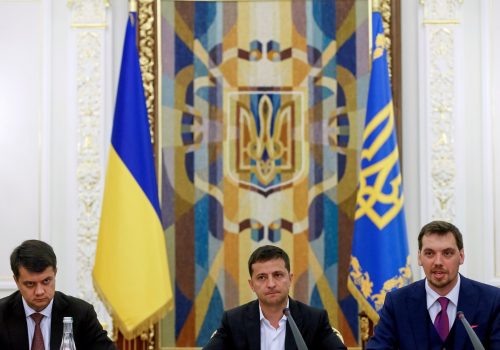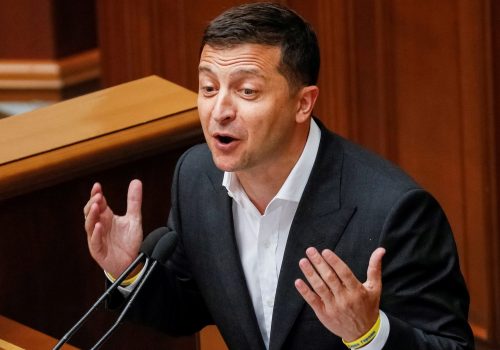On September 4, the Odesa regional council fired prominent artist Aleksandr Roytburd as the director of the Odesa Fine Arts Museum. Aleksei Kobylnikov, a representative of the pro-Russian Opposition Platform-For Life political party, initiated the vote against him. Despite the protest of Svetlana Shatalova, the acting governor of the Odesa region, the council voted to terminate the museum director’s contract early.
The council’s decision provoked a political storm of unexpected dimensions. The same day Dmytro Kuleba, the newly appointed vice-prime minister, Volodymir Borodyanskiy, the minister of Culture, Youth, and Sport, and popular rock musician turned politician Sviatoslav Vakarchuk, rallied to support the ousted museum director.
Vakarchuk accused the regional council of engaging in a “cultural revanche.” The recently reformed Ministry of Culture, Youth, and Sport created an emergency legal team to deal with the incident in Odesa. The Ukrainian section of the International Committee of Museums issued a statement accusing the members of the Odesa regional council of firing Roytburd for his political opinions—a gross violation of human rights.
Stay updated
As the world watches the Russian invasion of Ukraine unfold, UkraineAlert delivers the best Atlantic Council expert insight and analysis on Ukraine twice a week directly to your inbox.
The sacking of the museum director turned into a national political crisis, triggering an avalanche of articles in leading newspapers and a tempest on social media. On September 8, more than 1,500 protesters gathered at the Odesa regional council demanding that they reinstate Roytburd.
A group of activists posted a petition on the official presidential website pleading to move the regionally run museum under the management of Ministry of Culture, Youth, and Sport. Roytburd, of course, would have to be reappointed its director.
Why did the firing of a museum director unleash such a torrent of emotion?
Aleksandr Roytburd is a well-known artist who played a crucial role in the establishment of contemporary Ukrainian art after the fall of the Soviet Union. He participated in numerous international art exhibitions, including the curatorial program of the Venice Biennale. Roytburd’s works hang in some of the most prestigious galleries in the United States and Europe. For example, he has a piece in MoMa in New York. He also took part actively in the Maidan Revolution, giving numerous speeches during the non-violent stage of the protest.
After 2014, Roytburd established himself as a respected public intellectual supporting liberal pro-Ukrainian forces. His activities annoyed Vladimir Putin’s followers in both Russia and Ukraine and provoked a nasty anti-Semitic smear campaign. The “Novorossiya” (New Russia) online anti-Ukrainian rag labeled him as an “odious Judeo-Banderist.”
In 2017, through a competition, Roytburd was named director of the Odesa Fine Art Museum. However, the members of the regional council refused to confirm him and started a defamation campaign bordering on absurdity. Among other sins, they accused him of painting with fecal matter rather than paint. Fake chemical expertise was provided to support this outlandish claim. Finally, Maksym Stepanov, the governor of the Odessa region, tired of the council’s shenanigans, sided with Roytburd and offered him a five-year contract.
Eurasia Center events

The new director found the museum in a state of complete decline, which is unfortunately all too common for Ukraine’s provincial cultural institutions. In two years, he successfully renovated some halls, attracted private sponsors, and organized lively exhibitions and educational programs. Before Roytburd, city residents and tourists were rare; he rapidly transformed the museum into an important cultural center.
Predictably enough, his progress failed to impress his political opponents. The Opposition Platform members of the regional council played tried to sack Roytburd more than once but failed to secure enough votes. On September 4, they finally succeeded with the lame justification that Roytburd didn’t treat the council with the “proper respect.”
Roytburd’s case is important for many reasons, but first, it unites politicians from different camps. He is supported by both top Poroshenko and Zelenskyy people. It seems that the Odesa chapter of the Opposition Platform-For Life party found the wrong enemy this time. There is no love lost between President Zelenskyy and Viktor Medvedchuk, one of the co-chairs of the Opposition Platform-For Life political party. A close friend of Putin, Medvedchuk constantly crosses red lines. His frequent trips to Moscow, a “documentary” he commissioned to represent the Maidan revolution as a CIA plot, and an attempt to organize a TV-bridge with the central Russian propaganda outlet on the eve of the Ukrainian presidential election have not gone unnoticed. Zelenskyy recently stated that he is fully aware of the illegal foreign sources of financing of the Opposition Platform-For Life party. The partisan firing of a popular cultural figure and civic activist is an additional reason to scrutinize the party’s activities.
Konstantin Akinsha is a visiting fellow at the Max Weber College in Erfurt, Germany.
Further reading
Image: In 2018, Nataliia Zabolotna, director of the International Economic Humanitarian Forum, speaks at the opening of Aleksandr Roytburd's new show in Kyiv, Ukraine. Roytburd was the head of the Odesa Fine Arts Museum until September 4. Credit: Art Ukraine



